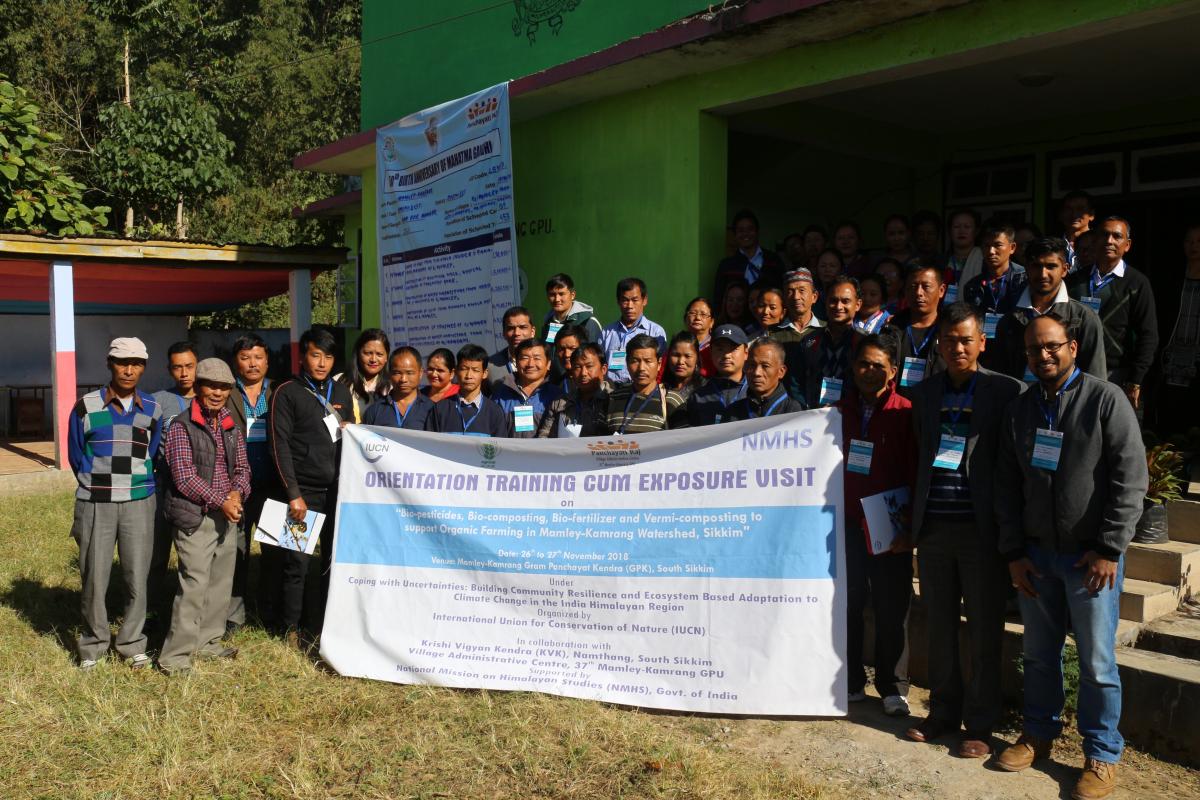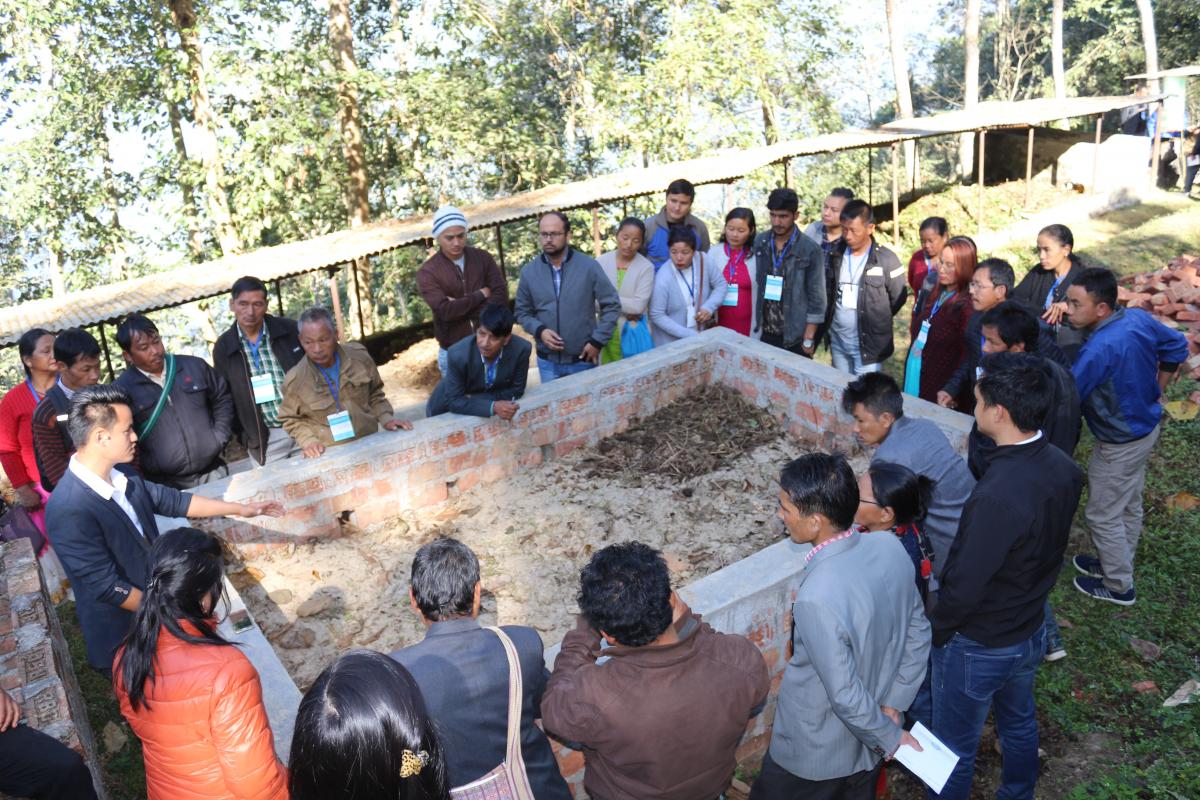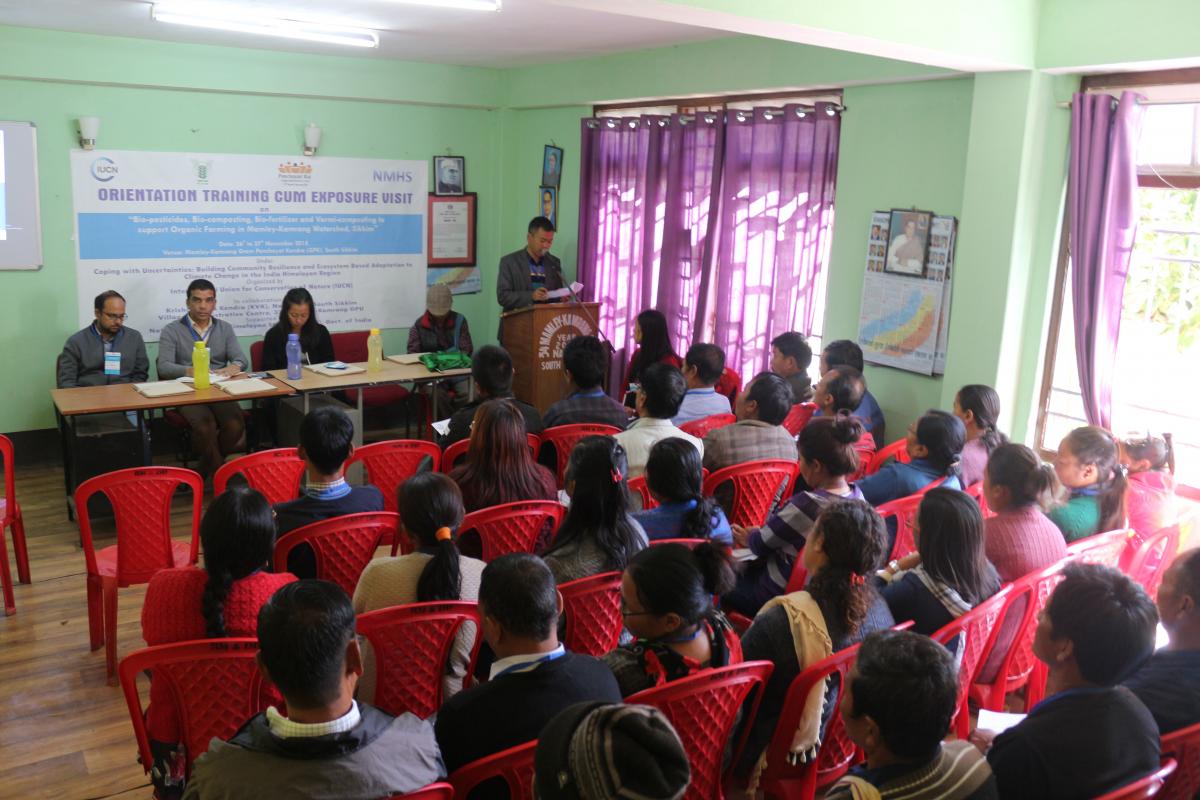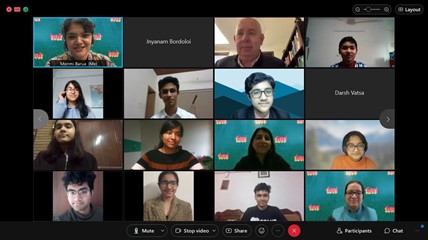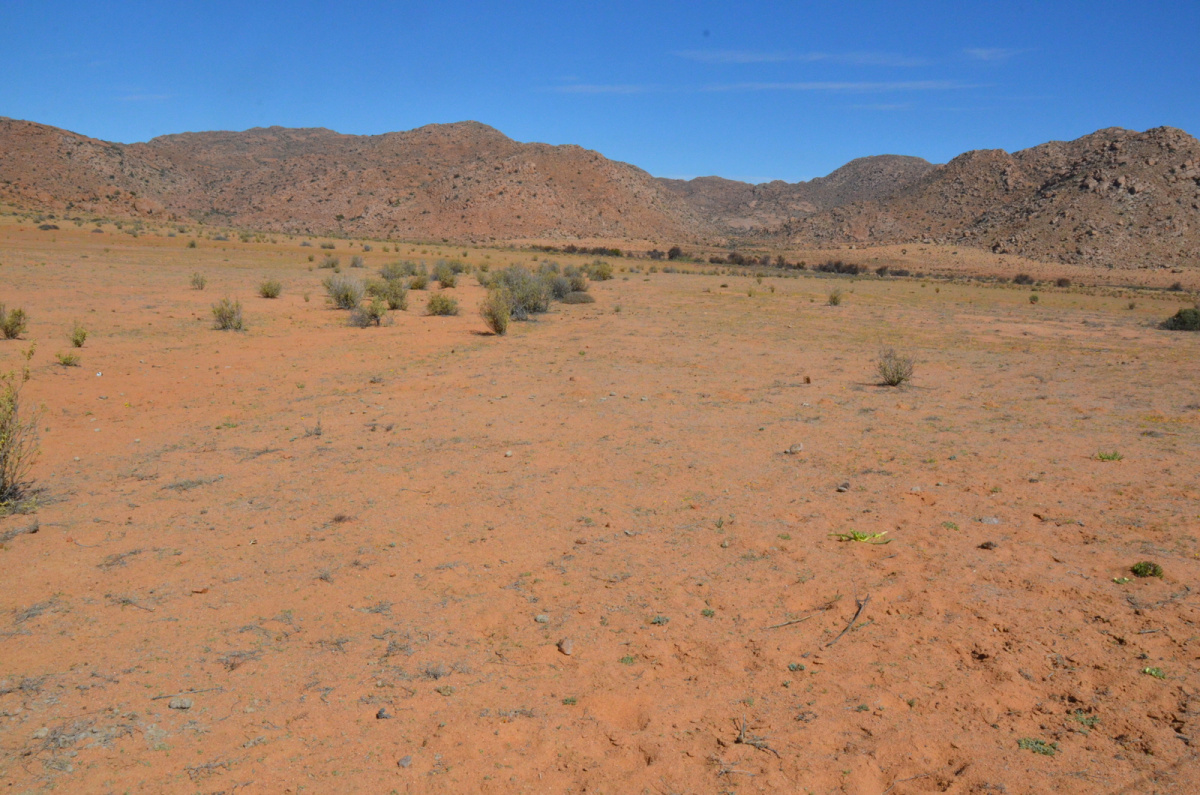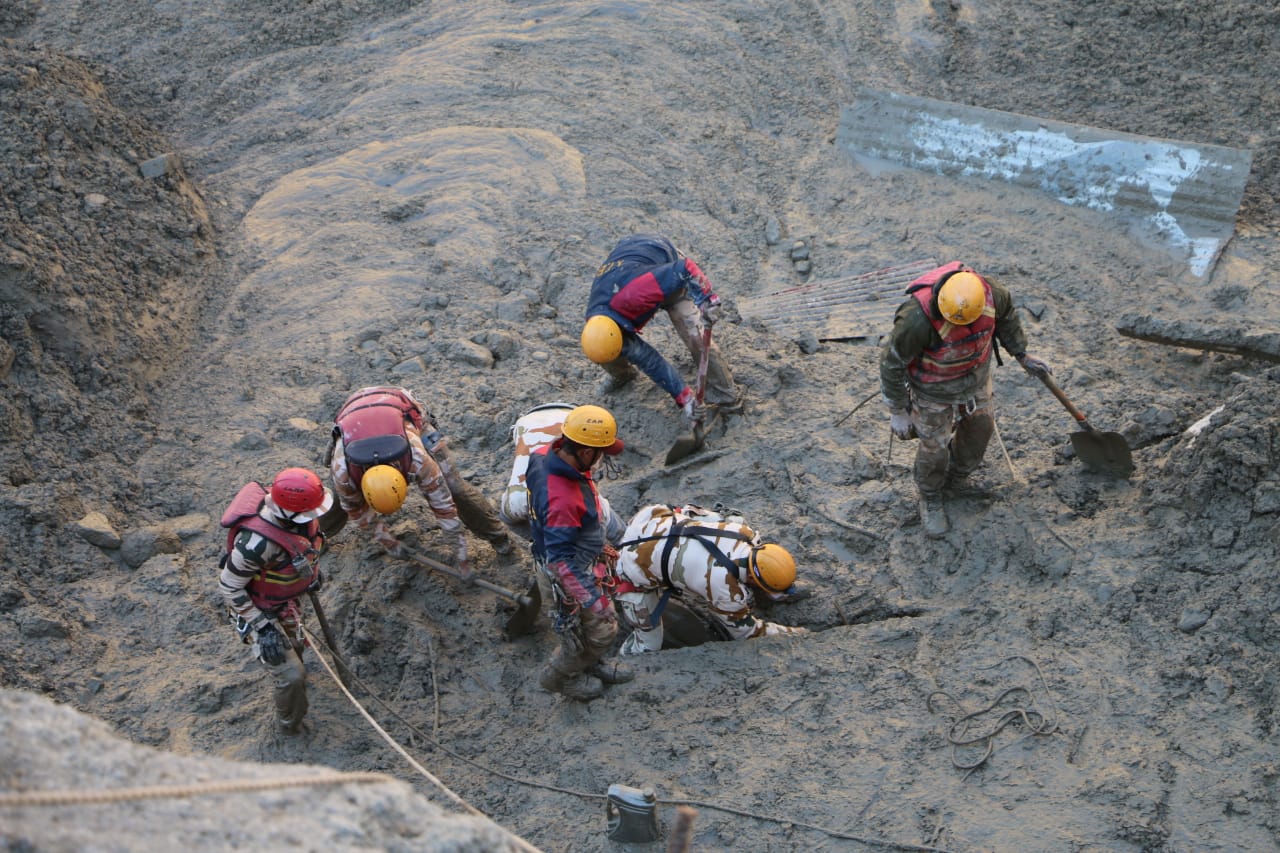Orientation training cum exposure visit to promote organic farming in South Sikkim
On November 26-27, 2018, IUCN organised a two-day orientation training cum exposure visit on “Bio-pesticides, Bio-composting, Bio-fertilizer and Vermi-composting to support Organic Farming” at Mamley-Kamrang watershed, South Sikkim. The collaborating partners included Krishi Vigyan Kendra (KVK), and Namthang and Village Administrative Centre (VAC) 37th Mamley-Kamrang Gram Panchayat Unit (GPU). The programme was organised under the project “Coping with Uncertainties: Building Community Resilience and Ecosystem Based Adaptation to Climate Change in the India Himalayan Region” supported by the National Mission on Himalayan Studies (NMHS), funded by Ministry of Environment, Forest and Climate Change (MoEFCC), Govt. of India.
The main aim was to impart knowledge along with field demonstration on the use of bio-pesticides, bio-composting, bio-fertilizers and vermi-composting to local farmers. The programme also focussed on various State Government schemes/programmes related to organic produce, and also aimed to create a platform for knowledge exchange between line departments and local farmers. The local farmers (8 participants each from five wards) of Mamley-Kamrang watershed, South Sikkim were the main targeted participants for the programme. Approximately 60 participants, including Panchayat members and officials from state government departments participated in the programme.
The first day of the programme focused on imparting theoretical knowledge on different composting methods, bio-pesticides, bio-fertilizer and awareness on state govt. schemes for organic farming to the participants. Mr. Vipul Sharma from IUCN-India delivered the welcome address highlighting the various activities of IUCN and the various aspects of the CwU project in the three states of Himachal Pradesh, Sikkim and Uttarakhand. Mr. I.P. Shivakoti and Ms. Yangchenla Bhutia, experts from Krishi Vigyan Kendra (KVK), Namthang talked about the principles and benefits of organic farming and also highlighted the different types of organic manures or composting methods such as rural compost, Farm Yard Manures (FYM), green manures, Effective Microorganism (EM) Technology, vermi-compost, vermi-wash, NADEP composting method and panchagavya. Mrs. Nar Maya Sharma from Food Security & Agriculture Development Department and Mrs. Kalpana Shrestha from Horticulture & Cash Crop Development Departmentalso shared information about state departments' ongoing organic farming related schemes and initiatives undertaken by their departments to support organic farming in South Sikkim. This was followed by Mr. Tulsi Das Rai, a progressive farmer from Turuk village, who exchanged his ideas and experiences on composts, bio-fertilizers and bio-pesticides.
 Photo: IUCN\ Jhony Lepcha
Photo: IUCN\ Jhony Lepcha
An exposure visit was organized the next day to the Krishi Vigyan Kendra (KVK), Namthang, South Sikkim, which is about 22 km from the watershed area. At the KVK, Mr. Wilson Rai, one of the subject experts, talked about classification of plant nutrients (nutrients available in soil and water), key to visual diagnosis of nutrient disorders, nutrient deficiency symptoms, soil sampling techniques/procedures, jeevamrutha, biochar and pest management. On field/ farm demonstration on different composting, bio-fertilizer, azolla and bio-pesticides methods and management was conducted by Ms. Meena Pradhan, Ms. Yanchenla Bhutia, Mr. Wilson Rai, Mr. Tshering D. Tamang and Mr. Karka Bdr. Bareily during tthe course of the day. An interaction session was held to discuss organic farming related problems along with local solutions. The programme was brought to a close by Mr. Jhony Lepcha from IUCN, who thanked all the local farmers for their active participation and requested them to initiate practical learnings from the workshop into their daily activities while imparting the knowledge they had gained to other interested farmers.
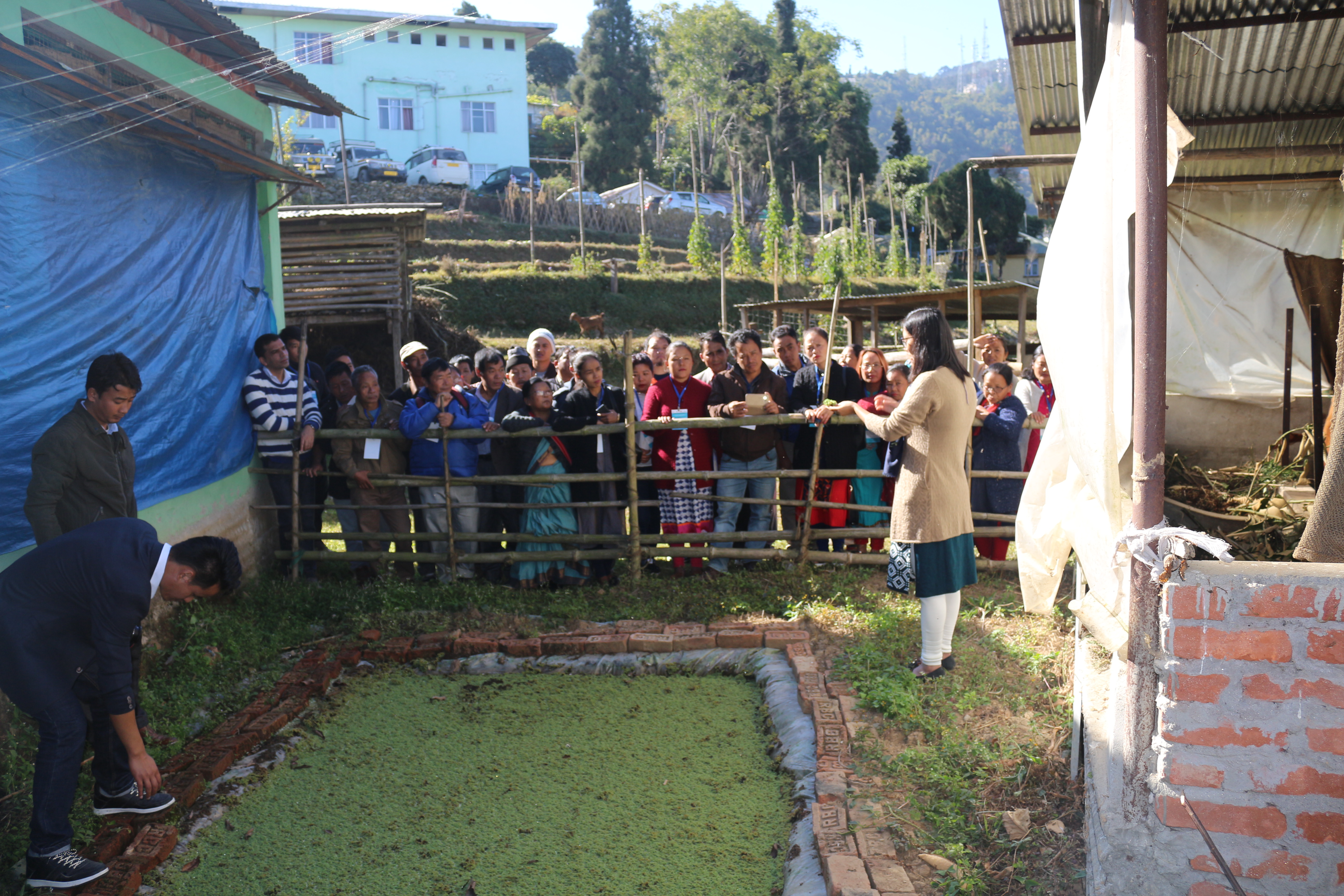 Photo: IUCN\ Jhony Lepcha
Photo: IUCN\ Jhony Lepcha
The participants appreciated the training cum exposure visit, and indicated their interest in adopting composting methods in their watershed area to strengthen organic farming practices as well to enhance their agricultural produce. Local farmers were particularly interested in vermi-tetra beds and azolla cultivation.
For more information on IUCN’s CwU project, please click here.
